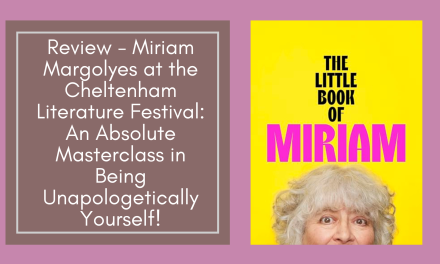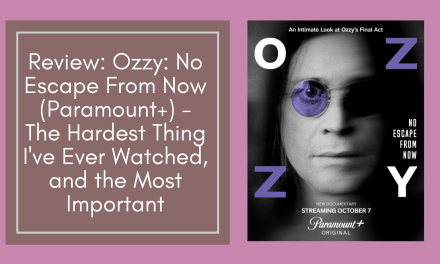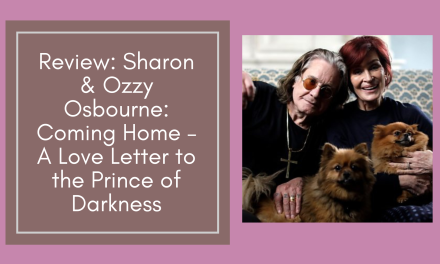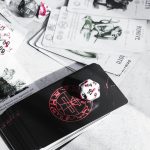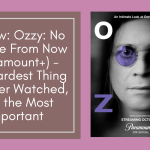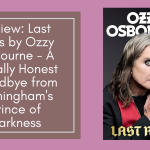On 5 July 2025, I sat on my sofa with the lights dimmed, my home cinema system deployed and my heart full of anticipation. The livestream from Villa Park in Birmingham flickered to life on my screen, and I could hardly believe what I was witnessing: Black Sabbath, reunited once more in the city where it all began, with Ozzy Osbourne front and centre. I wasn’t there in person, but I didn’t need to be. Even through the screen, the electricity of that night was undeniable. It was more than a concert. It was a cultural crescendo, a spiritual farewell, and for me, an emotional homecoming.
It’s not a comparison I make lightly but watching Ozzy that night felt on par with the legendary Queen performance at Live Aid on 13 July 1985, which took place exactly 40 years ago. I’ve watched that footage of Queen more times than I can count, Freddie Mercury is the #LoveOfMyLife. His commandment of the stage and interaction with the crowd with every glance, every movement and every note was beyond incredible. That 20 minute Queen set from Live Aid has gone down in history as one of the greatest live performances of all time.
And yet here I was, 40 years later, witnessing something equally historic. I never thought I’d see another live performance in my lifetime that would be equal to Queen and Freddie Mercury’s iconic Live Aid performance, but on 5 July 2025, Ozzy and Black Sabbath was just as good as Queen and Freddie Mercury from Live Aid in my eyes.
The Fragile Prince of Darkness on His Throne
Ozzy was very fragile, that much was clear. He was seated for the whole performance in, quite appropriately, a black throne adorned with a bat. But he was still Ozzy – the same raw, rebellious, endlessly human force who defied the odds time and again. His voice when singing was incredible, but it cracked somewhat when he was talking to the crowd, probably from the emotion of it all. When he said, “It’s so good to be on this stage, you’ve got no idea how I feel,” I burst into tears. His movements were much slower than they once were, but his spirit? It was untouchable. When he sang “Mama I’m Coming Home” it wasn’t just a song, it was an anthem of survival, of endurance, of owning your chaos. And Ozzy WAS home, back in the UK where he belongs. Watching him, I was struck by how much of my own resilience I owe to figures like him. Outsiders. Fighters. People who were never meant to “make it” but did so anyway, and on their own terms.
When the Music Died
When the news broke just over two weeks later on 22 July 2025 that Ozzy had died, something in me crumbled. The world may have lost a legend, but I had lost a part of my past. A part of myself.
I’ve always found myself deeply affected by the deaths of public figures that mean a lot to me, something many people struggle to understand. But for me, they aren’t just celebrities. They are woven into the very fabric of my life. Freddie Mercury. Princess Diana. David Bowie. Rick Parfitt. George Michael. Carrie Fisher. Rik Mayall. Queen Elizabeth II. And now Ozzy Osbourne. Each one left a mark on me. Each loss hit me as hard as if I had lost a beloved family member.
The Icons Who Shaped Me
When Freddie Mercury died in 1991, I was beyond devastated. I had grown up with his voice, his charisma, and his unapologetic presence. Freddie gave me permission to be bold, to embrace my differences. As a neurodivergent woman who never fit the mould, that mattered. His death wasn’t just the end of a musical era for me; it was the silencing of a voice that had always told me it was okay to be different.
Princess Diana’s death in 1997 was a very different kind of loss. It was public grief on a scale I’d never seen before; she was so young when she died, only 36 years old, so her death was even more shocking. She was the “People’s Princess”, a woman who radiated empathy, who used her voice for good, and who dared to show vulnerability in a world that punished it. Her passing left a void in the nation’s heart, but it also left one in mine. She had always seemed like a beacon of kindness in a world that could be cold and cruel.
In 2014 the actor and comedian Rik Mayall passed away, followed with the death of Robin Williams – both of which hit me incredibly hard. I was battling an avalance of grief and loss that year (I had lost my much loved and much wanted son Frankie to stillbirth in November 2013, followed by my father in law Allan in June 2014) the death of both Robin and Rik hit me like a ton of bricks. Rik Mayall was only in his early 50s and was one of my all time favourite comedians, I was a HUGE fan of The Young Ones, of The New Statesman (I loved the character he played in it called Alan B’Stard) and of course his legendary appearances as Lord Flasheart in Blackadder II and Blackadder Goes Fourth. Rik’s brand of comedy was bold and edgy, and would shape comedy in the 1980s and the decades to come. And Robin Williams passing away was a huge shock, there was talk that he had taken his own life as he had been diagnosed with lewy body dementia. One of my all time favourite films of his is Mrs Doubtfire among many others, and I loved him so much in “Mork and Mindy” and as a stand up comedian, his “Live at the Met” show is one of the funniest I have ever seen. His improvisation skills were off the charts amazing, which is what I loved about him.
Then 2016 seemed to be the year where many stars seemed to potter off this mortal coil. In fact, so many passed away that year the BBC had to have 2 obituary instalments when they did their “review of the year” just to fit them all in. Four of the most notable who passed away that hit me hard in 2016 were David, Bowie, Rick Parfitt, George Michael and Carrie Fisher. David Bowie’s passing in January 2016 was a shock to me because he kept his cancer diagnosis so well hidden. Then on Christmas Eve 2016 my all time favourite rock god Rick Parfitt from Status Quo passed away from sepsis. The very next day, Christmas Day, it was annouced that George Michael had died. And if that wasnt bad enough, on 27 December Carrie Fisher who played the iconic character of Princess Leia in Star Wars had died. It was absolutely relentless, so many iconic people who I loved so much were suddenly no longer with us. I spent the end of 2016 locked in perpetual grief.
Queen Elizabeth II’s death in 2022 felt like losing the grandmother of the nation, and as if I had lost my own grandmother. Her presence was a constant throughout my life. She represented stability, tradition, and duty. When she passed, it felt like the end of something fundamental, and the end of an era. There was an unspoken assurance that, no matter how turbulent the world became, she would always be there. And then she wasn’t.
And now, Ozzy has gone.
Birmingham’s Royal Son
Ozzy Osbourne wasn’t royalty in the traditional sense but in Birmingham, he was theirs. More than a musician, he was a symbol. Of working-class grit. Of rebellion. Of surviving the darkness. As someone who’s lived with complex PTSD, autism, ADHD, and the aftermath of lifelong bullying, Ozzy’s raw honesty about his own struggles always meant the world to me. He never tried to be perfect, he just was. Flawed, outrageous, and yet deeply human. Watching him overcome addiction, illness, and the weight of his own legacy gave me strength in my darkest moments.
That night at Villa Park, watched from my living room on my home cinema system, tears in my eyes, it felt like the last page of a beloved book. A story that shaped me in more ways than I could ever express. The crowd roared, the guitars wailed, and Ozzy gave us everything he had left. Just like Freddie’s 1985 Live Aid performance triumph, Ozzy also triumphed in 2025, 40 years later. He got his last wish, which was to perform for his fans one last time before he passed away, and he gave us all the performance of a lifetime. I will never forget it.
Why Celebrity Deaths Hit Differently
People often ask why celebrity deaths hit those of us who are neurodivergent so hard, and why we feel such grief for people we’ve never met. The answer is simple: we have met them. In our homes. In our headphones. In our hearts. They were there when we needed them, through grief, through trauma, through milestones. They gave voice to emotions we didn’t know how to express. They became symbols of who we were, who we are, and who we want to be.
These icons are more than entertainment; they’re our emotional landmarks. When they go, we don’t just mourn them. We mourn the chapters of our lives they represented. With Ozzy’s passing I have started to feel my own mortality. The realisation that I will potter off his mortal coil one day has hit me hard, this last week I’ve been questioning my life and thinking, “Have I done enough?”, “Have I achieved enough?”, “Am I enough?” and “What can I achieve and cram in before my time on this earth is done?” These thoughts are scary but all I can do is resolve to do the very best I can with the time I have left, to spend it with the right people and to not waste it.
A Legacy That Lives On
Ozzy’s death feels like the end of a personal era for me. But his legacy will live on forever. He reminded us all that it’s okay to be different, and that the misfits, too, can leave their mark on the world.
Rest easy, Ozzy. You made us feel seen. You made us feel alive. And like family, you’ll never be forgotten.
I’ll close this article with the iconic line from the Black Sabbath song “Changes”:
I feel unhappy, I feel so sad, I’ve lost the best friend that I’ve ever had…..

